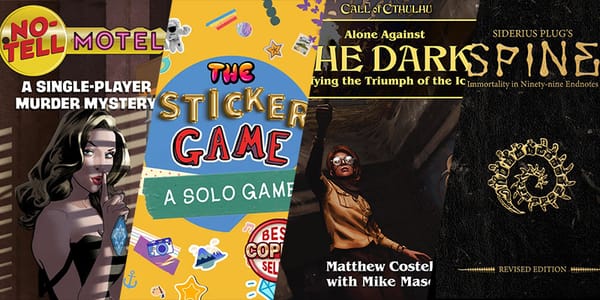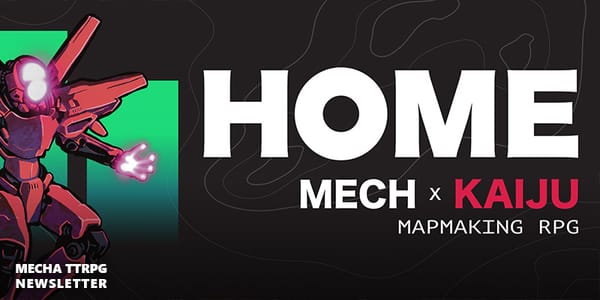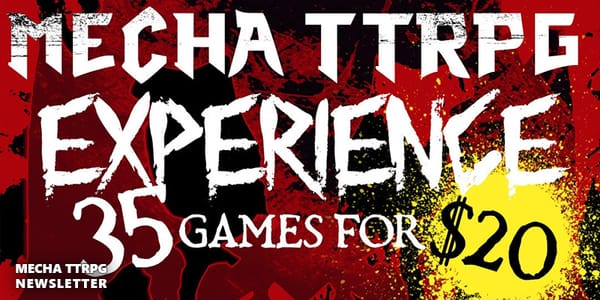Interview: Jay Dragon on Bookplay
An interview with Jay Dragon about how ttrpgs play with books
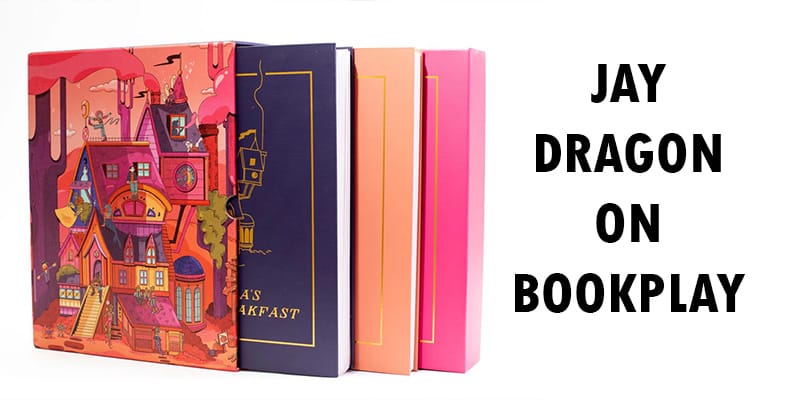
This interview follows a series of essays on how we play with books in ttrpgs and as a lead-up to a game that I’ve been working on called SPINE, a Pale Fire-inspired ttrpg in which the book is the game and vice versa.
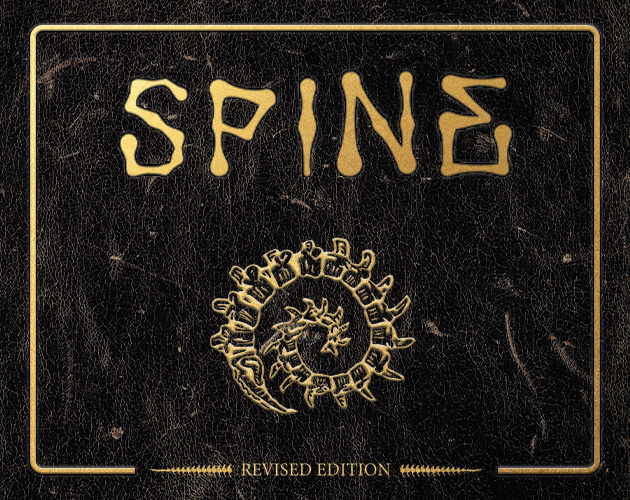
SPINE is free for a limited time.
SPINE and my essays were inspired by Jay Dragon, designer of hits like Wanderhome, Yazeba’s Bed and Breakfast, and Sleepaway. She’s also the designer of Seven Part Pact, which is not yet released but has already generated a lot of excitement by those who have played it.
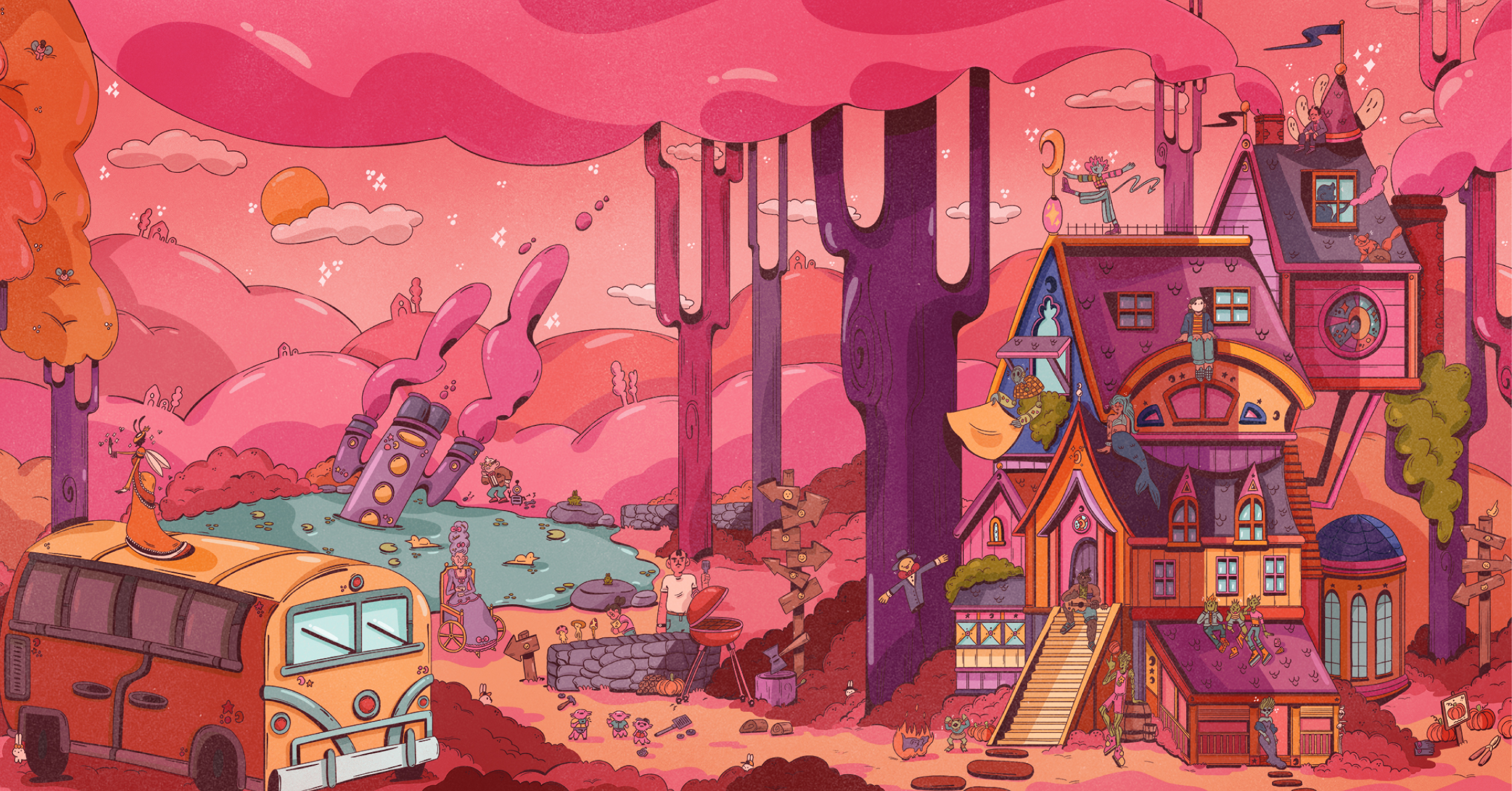
Jay, in your interview with Sam Dunnewold on Dice Exploder, you discuss the importance of books in ttrpgs and then proceed to describe the unique ways that people play with books in your games. There are many published games that play with their physical books in unique ways, such as props and keepsakes, but it seems to me that you're one of the first designers for whom this isn't just a project but rather an imperative, in that it’s fundamental to your understanding and design of ttrpgs.
Why do you incorporate books and bookplay into your work?
[Asa] I don't know if you agree with that characterization, but can you say a little bit about why you incorporate books and bookplay into your work?
[Jay] I'm with you. To me, there's a question when engaging in any kind of artistic process in any medium. There's the question of why this medium over any other. And for a lot of tabletop RPG designers, sometimes that question is extremely self evident. It's like, well, that's what I do. Whereas for me, I got started in LARP. I work for a board game company. Every time I choose to design a tabletop game, a tabletop RPG, it's an intentional choice that I could have made a different way. So, what are the strengths of the tabletop RPG? I oftentimes bring up the spectre of make-them-ups, so what does it have over pre-form make-believe descriptive play? And one of the biggest qualities is that you've got a book in front of you.
Avery Alder and I have been talking about this a bit, where Avery has a big belief that one of the big flaws of a lot of tabletop RPGs is that they are unintentionally book reading games. They are games that ask you to actually spend a lot of time at the table flipping through the book in a way the game doesn't want you to do. The game wants to be very punchy and very present, but it puts a lot of pressure on you to sort through this book constantly at the table. And I think, to me, if we're going to have the book at the table, we should use the book in play. It shouldn't just be a reference point. It should be an active participant and an active toy in that play process. Why do a tabletop RPG instead of a LARP? Well, with LARP, you don't get to have the book in front of you. When I was designing LARP, it was a huge factor in having to make game mechanics and do design that was really limited by the fact that I had to rely on the facile human memory. But tabletop RPGs, I think one of their great strengths is the book, and I think that they're at their weakest when you're silently flipping through a book and everyone is sitting there waiting for you to kind of summarize what you're reading and everyone's kind of bored. And they're at their most engaging sometimes when the book gets to be an active — not just a passive observer or articulator of the game, but an active — participant, an active prop, an active player.
[Asa] Many folks in TTRPGs got their introduction through D&D. And for me, D&D is so interesting because you've got this reference book, you got the players handbook, the GM's guide, what have you. You've got all these books. But in many ways the game feels like it's designed so that you don't need the book. And, in fact, many people play without the book at all or having even seen the book. We inherit the sense that the book is somehow an impediment versus what you are saying, where the book is a strength. And I think there could be something really cool with games where part of the game is flipping through it and maybe racing other people to find something or scavenger hunt-type stuff.
[Jay] Seven Part Pact is designed where you're a wizard and you've got access to a giant book of spells. As a wizard, you know all the spells. There's no limits on them in terms of your access. And so sometimes a very real factor in your ability to cast magic is how effective are you at indexing and finding the spell you need. If you want to bring someone back from the dead, where do you start? Will resurrection have what you need? Do you need to speak their true name? What do you have to do in order to do this? You have to find the right spell and flip through the book and process that, which works really well for a game about being ponderous wizards flipping through enormous tomes. Very fitting for the subject matter.
What games were influential for you in developing this approach to books and TTRPGs?
[Asa] You're coming from the LARP side of things. For me, it's hard to think of you as an outsider to TTRPGs, but you're coming from an outside genre primarily. So, coming into TTRPGs that book element was a lot more apparent to you. But I was wondering what games were influential for you in developing this approach to books and TTRPGs?
[Jay] So, you know, I LARPed. I was at the Wayfinders summer camp for ten years. Before that camp, even, I think, for me, the first kind of influence on this was reading monster manuals, reading Changeling: The Lost on the floor of Barnes and Noble at age eight. Flipping through these D20 books and utterly not caring about the rules, just being completely enamored: “Oh, this book is full of so many beautiful things. I want to just sit with my friends and go through it together.” And then getting older and being obsessed with playing characters and LARPs as a teenager who was very, “I want to have the books, I want to have the knowledge. I want to be writing things down and having my notebooks.”
And then I struggled with tabletop games for a while, because at first they felt like a facsimile of a LARP. It took me a while to get what made them special. They felt like a knockoff larp. Then finally it clicked for me when I played 10 Candles. I think 10 Candles and Monsterhearts were the two games that — Oh and Wisher, Theurgist, Fatalist was the one that I encountered very early on. I read Wisher, Theurgist, Fatalist at age 18, probably, before I played maybe any tabletop game. And I was like, “Oh, this whips.” Are you familiar with Wisher, Theurgist, Fatalist?
[Asa] No, I'm not.
[Jay] It's by Jenna Moran, and she's a brilliant game designer and a bit of a madwoman. And it's her most kind of unplayable, ambitious, unfinished game. It's a game where it's this big, long PDF full of diagrams and charts amongst the other rules, which are all very interesting. I spent a lot of time about the rules, but one element of it that is very interesting and is worth talking about is it has all these charts explaining concepts in the game that are these spiritual flowcharts. And there are several charts that are like, “how can you tell when you're playing Wisher, Theurgist, Fatalist?” “How do you go about starting that process?” And there's one that's the auto poetic mode where you're fated to play WTF. It is foretold, and then you achieve it, and then you realize you're doing it. And it's just an utterly brilliant, utterly impossible game.
And that and 10 Candles were really — The thing that makes them feel really special is that when I get to play with them, I get to engage with these objects in ways that break out of the literal and enter into the metaphorical and the conceptual and the abstract in a way that LARP didn't really let me.
How do you think about reading games as a form of play? And how do we design for this type of play?
[Asa] In one of my posts on bookplay, I propose that we often play with a ttrpg book as an “anchor,” or “a reference object through which we can ground our play, either with setting or rules.” And one of my points is that anchors invite play in the same way that fiction invites play. Readers play with words and their meanings too, and anchors invite wordplay with both fiction and, especially, rules, alluding to “rules lawyers.”
I wanted to raise this because you have this great anecdote called “Inpatient” in your 2021 article A Dozen Fragments on Playground Theory, in which a friend of yours took one of your books with them to the hospital and read it over and over again during that time. And you say, “It was an anchor to a world they couldn’t otherwise access. And that was play as well. There are always more ways to play than the designer can envision.” One of the points that I take away from this story is how reading games is also a form of play.
How do you think about reading games as a form of play? And how do we design for this type of play?
[Jay] And that was the thrust of the lyric game movement during 2019, 2020. That was where I cut my teeth in some ways. It was a whole new wave or generation of designers who realized, "Oh, hey, we want to make these games, and we really want to kind of push—" It was this moment when story gamers and OSR folks and LARPers were all talking to each other and taking each other really seriously and cross collaborating in ways that hadn't really happened before. And so, we're like, let's take this to its extremes. What if we make these kind of zines about these themes where we're really not concerned with playability. We're concerned with kind of this artistic, poetic, lyrical quality. And then, you know, from there, we can try to play these once we've made them and see what happens. And that was the emergence of lyric game movement.
And so I oftentimes think about a lot of my work, Wanderhome, Yazeba's, Seven Part Pact, as existing kind of in this post-lyric, the shadow of lyric games where a thing that I'm really thinking about is holistic quality of the game, right? That this is a game that is even if you don't ever actually get a group together to play it, it enriches your life and it provides you with meaning and you can sit down with it and engage with it in the way that my friend in the hospital did. I think that if I'm going to make a book, I'm going to make a good book. There's a lot of ways I can teach you the rules of the game. Clearly, that's not my only concern.
But I think that your language of anchors is really important. I have reached for similar concepts before when talking about games, although I think I like the phrase anchor for them. I think that the thing is that, when we sit down and play a game together, we can kind of have any shared vocabulary of touchpoints, right? And those could be that you and I both love Lord of the Rings. It could be that you and I both love Dungeons and Dragons. It could be that you and I both have this art book by Brian and Wendy Froude, and we're referring to it constantly. You can have any number of these shared cultural emotional touchstones that we can use to play a game together with.
And we can use them very rigorously. We could say magic is only possible if it could occur in Lord of the Rings. Or, we could say, you can only build a character that would fit in amongst the paintings of Brian and Wendy Froud. I think that games are in addition to providing these rules, they also provide us with what you're calling these anchors, these kind of imaginative ways of establishing a shared a shared baseline, a shared creole, a shared dialect that we can we can use to kind of bridge the games that we've been conceptualizing.
What can designers learn from fiction writers?
[Asa] In the same post, you open with a note on “Erin Hunter’s RPG,” which you later expand into an article called Systems of Relation. In both, you characterize Erin Hunter, who is a collection of authors for the Warrior Cats series of stories, as the “greatest designer of all time.” As I understand it, the point that you’re making is that fiction operates on a system just as ttrpgs do, although it is not a mechanical system. I hadn’t read Systems of Relation until you recently pointed it out to me, but as I read it, I realized that these systems are what I see as “anchoring” us in our play.
Can you say a little bit about your thoughts on that and what designers can learn from fiction writers?
[Jay] The shared imaginatory world that we build in RPGs is one that requires consensus and requires a shared pool of understanding. The thing that fiction writers are really good at is establishing that shared pool of a fantastical second world with an underlying relational logic. If I'm an elf in Lord of the Rings, here's how I would treat a dwarf. If I'm a member of Swamp clan, here's how I would treat a cat from Thunder Clan. If I encounter an older cat, here is how I relate to them. If I encounter a young cat, if I encounter a house cat, this is how I relate to them. If I encounter an eagle, right? This is how I relate. So it's all about establishing these relationships between yourself and every single other thing in the world, and then compounding on those and teaching those.
I think that's the biggest takeaway that RPG designers should have. You're not making video games. You're not making board games because those things can kind of rely on their materiality to enforce these rules. But in an RPG, in the same way that a LARP is, the rules of the world are maintained through the ability for the players in their moment to understand them and to hold on to them. And I think that a system of relations is going to be substantially more impactful than trying to build these mechanical hooks into everything. What does it mean if I have a rule that's "You get -1 on charisma checks against elder dwarfs" versus saying "If you encounter an elder dwarf, this is how you're supposed to treat them. If you don't treat them that way, this is how they'll proceed."
It's this systematized process by which their interactions can be expected, and therefore twists on that can be surprising and be exciting. When you have a moment when a dwarf does not behave as they should, the players understand what that means in a way that feels very different than if it's mechanized. It's one thing if a young dwarf stands up and rolls a shitty charisma check against an old dwarf. It's another thing when you're 3 hours into a tense political meeting and you've established these relationships, and then someone offends them.
What is it that people love about physical books?
[Asa] I've heard a lot of folks advocate for PDF-only books, in response to the U.S.'s chaotic economic policies. But physical books remain an enticing if not an essential component of successful crowdfunding campaigns. What is it that people love about physical books?
[Jay] I'm a huge slut for physical books. I own probably about 400 books, a mix of everything I can get my hands on. I love books. I'm a fiend for them. I love running games out of books. I find running games out of PDFs to be really frustrating. When I'm running a game online, I will have the book with me. Sometimes I will print out articles or blog posts I'm really enjoying and put them in a three ring binder just so that I can keep track of them. I love the physicality. I love the tactility. I love taking notes in the margins. I love dog-earing pages. I love damaging the books. I like to have a little bit of a destructive relationship with them or at least a rough love relationship with them.
I think that the thing about books is that books occupy a degree of materiality in our lives, and therefore when you're crowdfunding, a PDF is a harder sell in some ways because a PDF is an insubstantial object. It doesn't exist in your life. It appears and it disappears, and you could have 1,000 of them or you could have one of them, and you wouldn't know. Whereas a book is a material object that sits around. It demands to be engaged with. You put it on your bedside table and you feel guilty you haven't read it. You put it in your coffee table, and guests pick it up when they come over. The book is an object that demands relation.
And so I think that people are going to bitch and moan, and I'm going to bitch and moan, about the state of printing. I think that already RPGs are proving to be a lot more nimble than board games on this front. I think board games are really taking the brunt of a lot of the tariffs. You basically can't manufacture a complex board game in the United States. Like, it is literally impossible. We do not have the infrastructure. Even with tariffs, it is cheaper to print them in China. Whereas with RPGs, it's like, you can print this in the US. There are US book manufacturers. Are they going to be able to do all the fancy things they can do in China? No, not necessarily. But they can do good stuff and you can get good books made, and people still value that.
I think that the RPG industry is not going to shift away from books anytime soon. Or if it does, I think that will actually end up being rather disastrous because I think that right now, the markup on books is one of the only things that allows the RPG petit bourgeois — I'm using it in the Marxian, artisan sense — to exist as a somewhat possible class, a little narrow band of creators. And I think that a shift to a PDF dominant market, you'd see a similar thing that happens to PDFs, which is what happens to video games where you would see larger publishers able to drive prices into the ground and damage the whole market. I think that a shift to PDFs would cause it to become more bourgeois and less artisanal, which I think is a net negative for a lot of hobbyist traders.
What is it about big books that drives so much interest?
[Asa] Big books are expensive to ship and produce. Indie creators, especially small indie creators, are much more limited in profit margins for these books. Still, big books persist. What is it about big books that drives so much interest? You've written some big books too.
[Jay] Yeah. I mean, it's a thing where... Oh, God. I mean, to get into the weeds of it, right? The fact is that you're going to see a higher market interest in one big book than five small books. I think that there's a consistent pattern for that. I think that if you can take your big project and put it in a big book, the ceiling gets a lot higher. What should your book cost? It should cost eight times the manufacturing costs, at least. So if a 100-page book costs $3 and a 300 page book only costs $4 to print, then, I mean, you want to go for the 300 book every time because you can mark that up a lot higher. So there's just a lot of very base, crude capitalist incentives tied to the production of larger books. I think smaller books are also always going to be appealing where I can print a zine for $1 and charge $15 for it and have a better markup than any of my large books. But also, those are going to have smaller audiences, and so you're always kind of constantly balancing those factors.
There's an artistic compulsion. There's the madness of the large book. I'm a maximalist, but I also think that there's these material pressures that produce markets and that inform how people engage, which is that when you're in competition with ebooks and PDFs and print on demand, it's like, why does the physical book need to be bought? Will you then have to dress the physical book up to make it do a lot of things that make it look really fancy to justify its existence? And if you're going to do all this fancy shit to the book, you need the book to be big. I couldn't sell you a 30 page hardcover. Check out my 30 page hardcover. It has a bookmark and gilded pages, and it costs $50. No, get out of here! That doesn't apply. So there's these market pressures to make books fancy. And if you're going to make fancy books, they should be larger books. And there's also market pressure to make books appropriately sized.
[Asa] Pointing back to something they were bringing up earlier is the book as an object, an art object or an object that demands attention too. Those big books, they have a lot of weight to them.
[Jay] And they market themselves. They demand you sit with them. If you see a zine in a game store, you're like, “Oh, whatever, that's a zine, even if the art's pretty.” But if you see fucking an 8.5 x 11 tome. If you see the Yazeba's book, and it's a giant pink cube demanding attention on the shelf. Well, fuck, right? You've got to, even if you don't want it, even if you don't like it, you have to respect it. You have to tip your hat to it. These large objects have a gravity that is an important marketing quality.
[Asa] That's one of the things that excites me about Seven Part Pact. These are big books. Like, the playbooks themselves are massive, right? But that's so fitting for a wizard's tome. I think that's part of the appeal to D&D too. Even though the book doesn't feel that important for D&D, there's something about that big book that demands attention and also suggests that this is a repository of knowledge in a similar way that a wizard's tome might. I think about one other game that I'll just mention Apollo 47 by Tim Hutchings, which is a 1,000 page manual, basically, an actual facsimile of a NASA manual.
[Jay] It's a 10 page game plus as many pages as DriveThruRPG would let Tim put in the book. I own a copy.
[Asa] Do you? That is so cool.
[Jay] It's one of my least favorite books just because it's so fucking heavy that if I put it on the wrong shelf, it will damage my bookcases.
[Asa] Well, that's a coffee table book. You need all four legs for that.
[Jay] Yeah, I don't have a coffee table sturdy enough. I've got a glass octagon of a coffee table. It will shatter it.
[Asa] Well, it could be its own coffee table, so there you go.
[Jay] Yeah. Yeah. Yeah.
What are the challenges for designing games with bookplay?
[Asa] I already mentioned economic considerations as an obstacle with how we produce and encourage play with books. But I want to know, what other challenges do you see as impediments for designing games with bookplay?
[Jay] Well, the biggest factor is that they demand in-person play, which is frequently not the main way in which a game object gets engaged with these days. What's the percentage of people playing any particular game online versus in person? You can have the best in-person tools in the world, but if you don't have any online support, it's like, well, this is actually a frustrating object, or at least it's not going to get the same level of engagement that it might otherwise. I think that one's very clear.
I think that maybe a more subtle challenge is the declining literacy rate in the United States. Certainly, there's a lot of people who want games where they can turn their brains off. Whereas I think that by challenging them to read and engage is really saying this is a game that demands critical thought in a way that people don't actually want from games. A book game is never going to have the same popularity as a beer-and-pretzels style RPG or an RPG that can be engaged with in a beer-and-pretzels way.
By extension, a book game is more vulnerable to being misunderstood. In addition to my more snide comment about literacy, legitimately there is the challenge of, like, I have ADHD. I have a lot of people in my life who have learning disabilities. These games are a challenge for them in a way that other games might not be. I can be unfair about it, but I can also be realistic and say that my boyfriend loves Seven Part Pact. I don't think my boyfriend would play Seven Part Pact if I wasn't the one who designed it. He does not have the fucking ability to sit down and dig through a book like that. You know, many in my life don't. That's a factor as well.
Part of the thing that makes the book game compelling is also what makes it inaccessible, and that's okay. Art can be inaccessible. Art sometimes should be inaccessible. One of my favorite books is House of Leaves, which turns inaccessibility itself into an art form. But I think you've also got to be real about the fact that this structure has its limitations and therefore is not a universal approach to game design.
What else would you like to say on this topic?
[Asa] That concludes everything that I have for you. Is there anything else that you want to say about this?
[Jay] I've been thinking a lot about toys lately. I brought that up a little bit, but I want to put it in context. RPGs oftentimes like to think of themselves as being the same as video games or part of the same medium, and RPGs are wildly different from video games. And the way I'm trying to understand that right now is through toys and rules, where a toy is an object with materiality, where it has these kind of physical constraints, the things you can and can't do by virtue of the physical object, whereas a rule is a thing that we choose not to do, even though we could. And a video game is a toy object. A video game is a physical thing. It's pixels and data and information that you are manipulating. And so it has limits determined by its infrastructure, its digital materiality. You can make Mario jump. But you can't necessarily pull Mario out of the screen and stretch him out really big and twist him around. You can't physically manipulate Mario with your hands. So it has materiality.
Whereas in an RPG, nothing's stopping me from choosing to describe Legolas as being twice as tall. The only thing stopping me is this sense of this imagined consensus-based reality. Both rules of mechanical rules and non-mechanical rules, systems of relation and systems of mechanics, both make a lot of sense when understood as effectively building this shared conceptual toy that we're trying to make. We're trying to do this weird thing where we're trying to build a toy that we can agree on in our heads. Kind of like we're both playing mental chess or blindfold chess, but we also don't really know what game we're playing. We're playing blindfold chess but we're also learning the rules of chess at the same time. So, we're negotiating the rules of chess as we imagine chess together. And so there's something really worthwhile and important to understand there.
There's an easy impulse when discussing what a book game is. In an RPG, there's very limited materiality and some of the only materiality that exists is in the physical limitations of the book. I think that's the useful thing to think about in terms of what is going on, and I think that raises a whole lot of other questions which maybe I'll be able to follow up with. There's a book I'm reading called The Rule Book. It came out in 2024. It's by some scholars whose names I can't remember. I believe they're all Scandinavian. They might have gotten to the places that I'm trying to get to right now, and if they haven't, I'm certainly going to write some blog posts about it. So certainly keep your ears out for where that's going.
If you want to hear more of Jay Dragon's design thoughts, please, please, please give her a follow on Patreon!
Jay Dragon (& Friends)
creating innovative queer RPGs

SPINE is free for a limited time.





